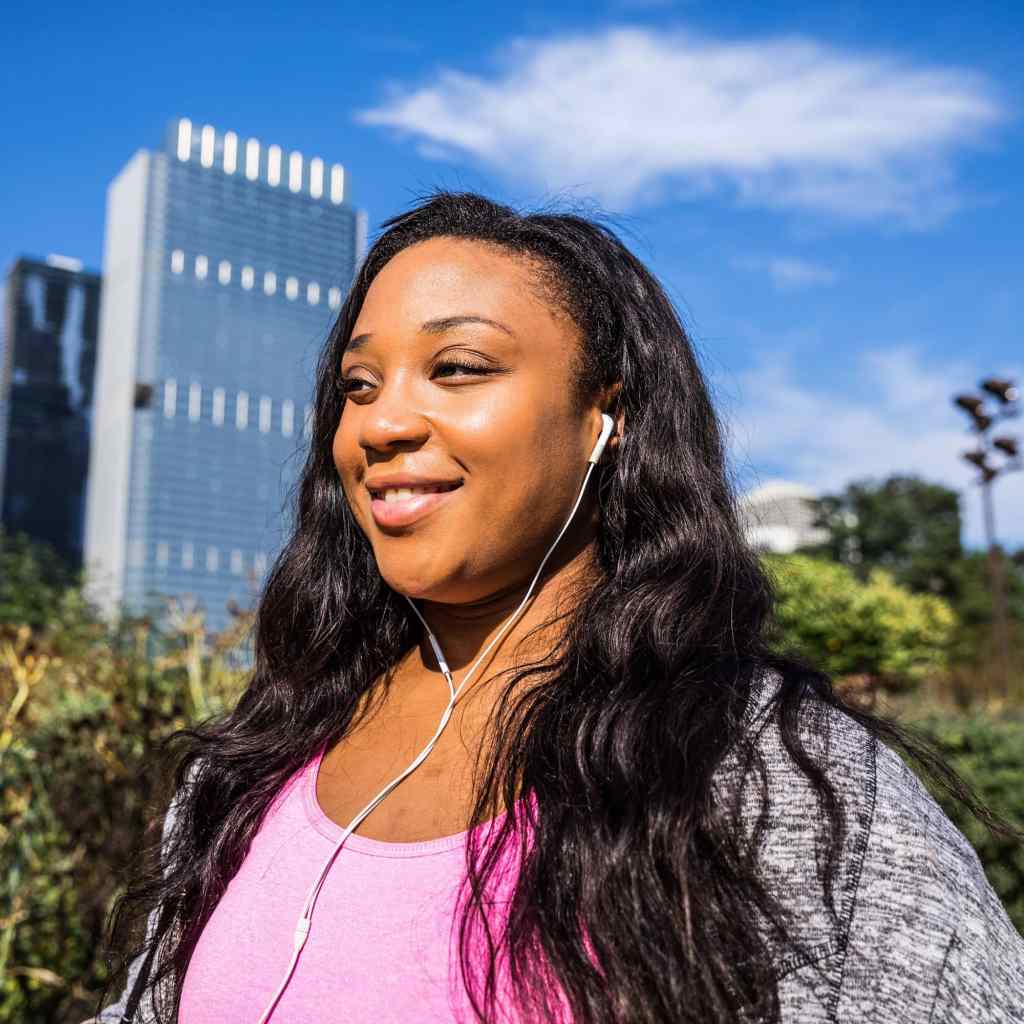The body-positive movement is all over Instagram, but what if the idea doesn’t resonate with you? Sure, you know diets are harmful and you’re learning to embrace intuitive eating, but loving your body as it is right now is really challenging. You’re not alone, and that’s why you’ll love hearing about body neutrality.
What Is Body Neutrality?
“Body neutrality is about feeling neutral in your body and knowing that your body, appearance, and weight do not define your worth or how you feel about yourself,” registered dietitian Brenna O’Malley, creator of the health blog The Wellful, told POPSUGAR. This can be a really radical shift when we live in a diet culture that tells us so many messages about what our bodies should look like, and many of us relate to roller-coaster-like relationships with dieting, exercise, and wanting to change our bodies.
Body neutrality helps find the middle ground. “You don’t need to love all of your body all of the time, but we can work on neutrality and respect, because it’s much harder to take care of something that you hate,” Brenna said. Body neutrality says, “Hey, I know it’s a lot of pressure to love yourself all the time. I’m not asking you to do that, but instead of being mean to yourself and valuing yourself based on how you look, let’s remember that regardless of what you look like, you’re valuable and deserve respect.”
How Does Body Neutrality Compare to Body Positivity?
“Body positivity has roots in the fat-acceptance movement of the ’60s and was about radical inclusivity and visibility,” Brenna explained. Today, the #bodypositivity we often see on social media is not this and is often more tied to “body love” with the focus on feeling positive in your body.
Antidiet registered dietitian Sammy Previte, LDN, CPT, with Dietitians of Palm Valley, added that body positivity means “accepting the body you have as well as the changes in shape, size, and ability it may undergo due to nature, age, or your own personal choices throughout your lifetime.” Body positivity is definitely not about smaller bodies equal better bodies. She said, “I like to think of body positivity more in the light of body respect.” It’s the idea that you can live comfortably in your body as it is right now, that you can take care of your body and nourish it with food and move it in ways that feel good.
Related: Here’s How I’m Trying to Save My Daughter From the Body-Image Issues That Scarred Me
Where the body-positivity movement you often see online and body neutrality differ is that body neutrality still isn’t about focusing on your body, your weight, or what you look like. Body neutrality can be a really helpful in-between place for being respectful and appreciative of what your body can do for you without feeling the pressure to “love” it.
How Does Body Neutrality Fit Into the Antidiet, Intuitive-Eating Approach?
When we pursue intuitive eating, changing the shape of our body is not the goal, Sammy said. Brenna added, “With intuitive eating, we’re shifting the focus off of weight and external messages or rules around food to focus on how we actually feel.”
While we’re on our journey to give up diets and eat intuitively, eating when we’re hungry, eating enough, and eating the foods we love could result in weight gain, and being body neutral can help us take away the fear and worry around that. It helps us say things like, “My value and worth are not defined by my body. I am more than a body. I won’t let the number on the scale or how I see myself today determine what kind of a day I will have.”
All of these concepts promote giving yourself more compassion and working on health, self-care, and respect for yourself – things we all deserve and can use more of – regardless of what we look like on the outside, Brenna said. Body neutrality and intuitive eating take the pressure off of our physical appearance and size, because we don’t first need to look a certain way to practice them.
How Can I Start to Be Body Neutral?
Brenna wants you to know that unlearning diet-culture messages about bodies is not linear work. It’s normal for there to be ups and downs throughout the process, and embracing body neutrality is a journey and doesn’t happen overnight.
If you want to learn how to be body neutral and respect your body, Sammy suggested recognizing harmful thoughts first. Ask yourself, “Would I have this thought about a daughter, sister, or mother’s body?” or “If I made negative comments about my daughter, sister, or mother’s body, would she respect me?” If the answer is no, you know you need to dismiss these thoughts and comments about yourself.

